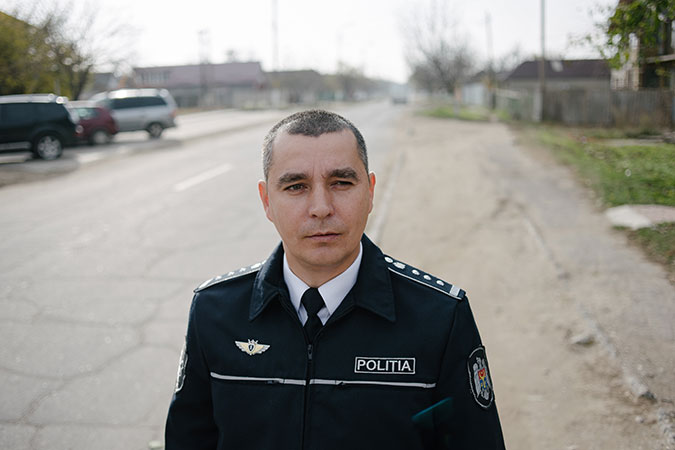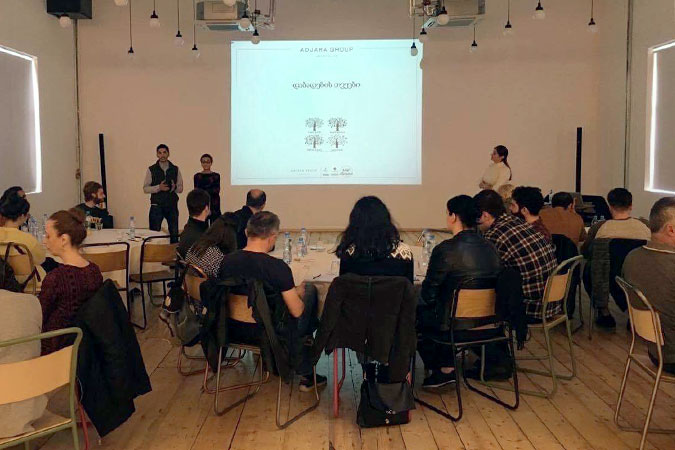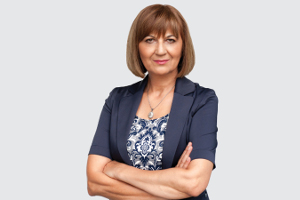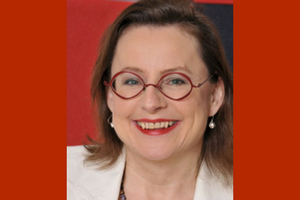Empower
Putting laws into action, police officers respond to violence against women in Moldova
Seven out of 10 adult women in Moldova have experienced at least some form of violence from their partners. However, only one in three women report to the police, due to stigma, lack of awareness and economic dependency. Research also shows that eight years since the special laws on preventing and combating domestic violence entered into force, police officers still lack knowledge about the legal provisions and mechanisms to enforce the law.
Victor Zglavoci wants to challenge the status quo. He’s the Chief of Police in Colibasi, Moldova. He has been part of UN Women’s ongoing initiative to promote good practices among first responders to violence against women in Moldova, including police officers, doctors, teachers, social workers and mayors.
He and his team are dedicated to ensuring the safety of the community. “One night we received a distress call from the deputy chief of the village school, one of the most respected women in our community, and went to her home immediately to investigate the situation. After identifying visible signs of violence, we removed her husband, the aggressor, from the home and issued a restraining order for three months,” says Zglavoci. He made sure that his officers watched the house so that the abuser couldn’t break in and threaten his wife and children. “He tried for months to break in, but we did not let him near the neighbourhood. He finally gave up and left the village. It’s been years now and their children are all grown up. She still works in the school and they are happy. But that incident showed me that no one was safe from violence.” Read more►
More stories
In Georgia, businesses step up to support survivors of domestic violence get a fresh start
Five months ago, when Lika Goguadze returned to work, it was the first time in four years. “I have not had any job since I got married; my husband forbade me to work…Without a job, it would have been very hard for me,” she says. Goguadze is 37 years old and lives in Tbilisi, the capital of Georgia. After finally divorcing her abusive husband, freedom came with financial stress and emotional scars. Every eleventh woman in Georgia has experienced domestic violence. Many of them cannot leave abusive relationships due to financial dependency. The Adjara Group, a signatory of the Women’s Empowerment Principles, an initiative by UN Women and the UN Global Compact, is recruiting survivors and raising awareness to prevent domestic violence within communities. Read more►
From where I stand: “Women's voices are crucial in our civil society and can lead to change”
Radmila Žigić, the Director of Foundation Lara from Bijeljina, Bosnia and Herzegovina, has been working for 19 years without taking a break to support and empower survivors of violence against women. Her organization, a partner of UN Women, has been at the forefront of combating violence against women. “I feel the most fulfilled when I encounter former beneficiaries and they tell me that Lara has changed their life.” says Žigić. While advocating for more effective legislation, educating law enforcement officers and preventing sexual exploitation of women and girls, especially among school-age youth, Foundation Lara has significantly contributed to the reduction of this form of violence against women. Read more►
Take Five: "Supporting women's organizations is vital for ending violence against women"
Rosa Logar is one of the founding members of the Women Against Violence Europe (WAVE) Network, which is comprised of women's organizations from 46 European countries working to combat violence against women and children across the region. Established in 1994, the Network aims to promote and strengthen the human rights of women and children in general, and prevent violence against women and children in particular. WAVE is currently partnering with UN Women to support the work of civil society organizations on ending violence against women in the Western Balkans and Turkey. Logar discusses the vital role of the civili society in the fight to end violence against women. Read more►



